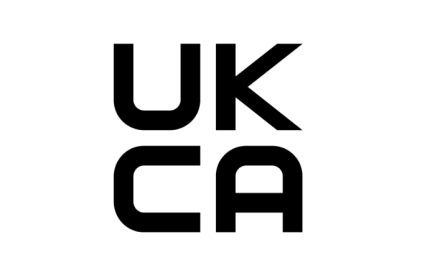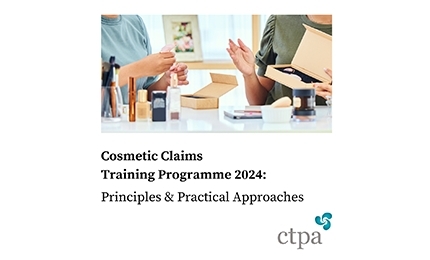Find us on...
On 23 August, the UK Government issued a series of notices to provide guidance to businesses on how to prepare if the UK leaves the EU with no deal. These included:
- Overview on preparations for a 'no deal' scenario
- Applying for EU-funded programmes
- Importing and exporting
- Labelling products and making them safe
- Regulating medicines and medical equipment
- Studying in the UK or EU
- Workplace rights
Among these, the notices specifically relevant for the cosmetics industry are those on importing and exporting, with two notices of particular interest:
- Trading with the EU if there is no Brexit deal: informing businesses of the implications for the trade of goods between the UK and EU countries and the actions they may want to consider to mitigate potential negative impacts;
- Classifying your goods in the UK Trade Tariff if there is no Brexit deal: which sets out the way in which businesses will identify their goods correctly, in order to establish what duties and rules apply for the declaration process of exporting to the EU or importing into the UK from the EU.
On 13 September the UK Government released new technical notices to provide information on what a no-deal could mean to economic operators and the public.
These papers are particularly important for non-UK businesses (or non-UK based responsible person) exporting goods to the UK market. The most relevant paper for the cosmetics industry is:
- Appointing nominated persons to your business if there's no Brexit deal: specifically mentions the Cosmetics Regulation and clarifies that
“For cosmetics, responsible persons based in an EU country will no longer be recognised by the UK after March 2019 (Regulation (EC) N° 1223/2009 is the main EU legislation covering cosmetics and covers the role of the responsible person). Businesses wishing to place cosmetics on the UK market will need to appoint a UK-based responsible person. This is due to specific legal duties assigned to the responsible person and their importance on ensuring the safety of products placed on the market.”
Additional relevant papers are:
- Trading under the mutual recognition principle if there's no Brexit deal: which clarifies that non-UK businesses exporting non-harmonised goods to the UK will need to ensure that the goods meet UK national requirements, regardless of whether they were previously lawfully marketed in another EU country or in the UK.
- Trading goods regulated under the 'New Approach' if there's no Brexit deal: relevant for other types of product, e.g. toys.
In the papers, the UK Government insists on the fact that a scenario in which the UK leaves the EU without agreement (a 'no deal' scenario) remains unlikely given the mutual interests of the UK and the EU in securing a negotiated outcome. However, it is important to keep in mind that even if a deal is agreed with the EU, it may not cover all technical challenges that will be faced by the cosmetics industry.
On 24 September the UK Government published the 'no deal' technical notice on REACH.
Key points are highlighted below:
- A UK REACH legislation will replace the EU REACH legislation for the UK market. This will establish a UK regulatory framework and domestic capacity to deliver the functions currently performed by ECHA. The Health & Safety Executive (HSE) will be the competent authority; there will be a specialist capacity to evaluate the impact of chemicals on health and the environment.
- Existing standards of protection of human health and the environment would be maintained.
- A new UK REACH IT system similar to the EU REACH IT will enable registrations for REACH UK.
- UK companies that registered under EU REACH will have to transfer the registrations to an EU-based Only Representative to continue access the EU market. This will require action before the UK leaves the EU.
- UK downstream users importing substances from EU will become importers and have registration obligations under UK REACH.
- Existing registrations in EU REACH by UK companies will have to be transferred into UK REACH to continue access to the UK market, by grandfathering the registration. These existing registrations will have to be validated with HSE: UK companies will have to provide basic information on the existing registration and upload it into UK REACH IT within 60 days of the UK leaving the EU. Companies will then have 2 years from the UK leaving the EU to provide full data package on these existing registrations.
- UK companies importing chemicals from EU that currently don't hold a EU registration will have to follow a notification process before the UK leaves the EU. Companies will have to provide basic data on the chemicals within 180 days of the UK leaving the EU, instead of undertaking a full registration immediately. A full registration will be required at a later time.
- Companies wishing to market new chemicals in both the UK and EU markets will have to make two separate registrations for both EU and UK REACH. The data package required will be the same.
Companies are invited to contact Defra with any questions or concerns regarding UK REACH and UK REACH IT. Defra is also inviting companies to participate in user research trials for the UK REACH IT system; companies who are interested can register here.
CTPA is monitoring these issues with its EU Exit Strategy Group and is working closely with the Department for Business, Energy & Industrial Strategy (BEIS) on cosmetics specific issues.
CTPA is also providing confidential one-to one meetings with members to advise on contingency planning.












